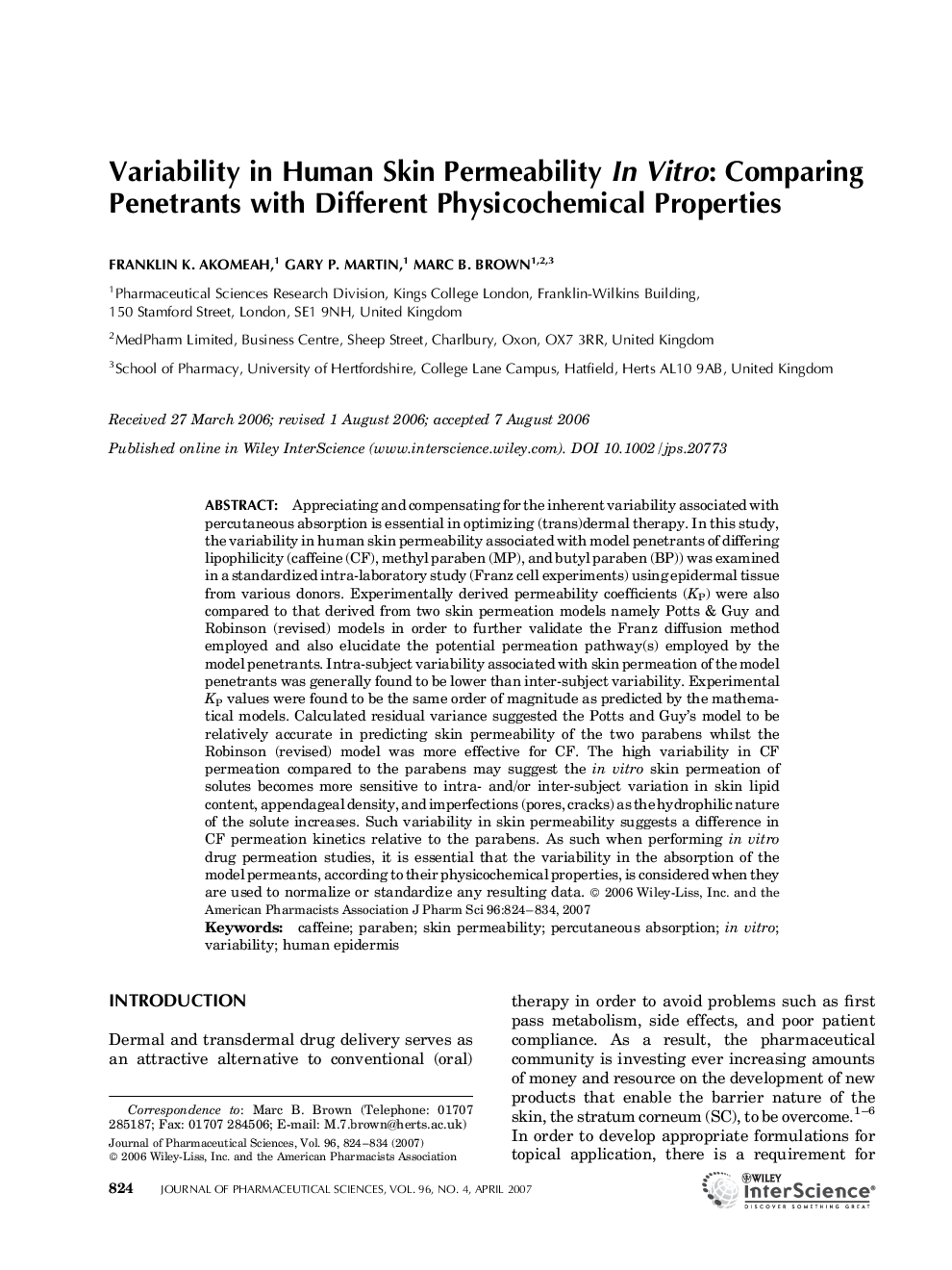| Article ID | Journal | Published Year | Pages | File Type |
|---|---|---|---|---|
| 2487752 | Journal of Pharmaceutical Sciences | 2007 | 11 Pages |
Abstract
Appreciating and compensating for the inherent variability associated with percutaneous absorption is essential in optimizing (trans)dermal therapy. In this study, the variability in human skin permeability associated with model penetrants of differing lipophilicity (caffeine (CF), methyl paraben (MP), and butyl paraben (BP)) was examined in a standardized intra-laboratory study (Franz cell experiments) using epidermal tissue from various donors. Experimentally derived permeability coefficients (KP) were also compared to that derived from two skin permeation models namely, Potts & Guy and Robinson (revised) models in order to further validate the Franz diffusion method employed and also elucidate the potential permeation pathway(s) employed by the model penetrants. Intra-subject variability associated with skin permeation of the model penetrants was generally found to be lower than inter-subject variability. Experimental KP values were found to be the same order of magnitude as predicted by the mathematical models. Calculated residual variance suggested the Potts and Guy's model to be relatively accurate in predicting skin permeability of the two parabens whilst the Robinson (revised) model was more effective for CF. The high variability in CF permeation compared to the parabens may suggest the in vitro skin permeation of solutes becomes more sensitive to intra- and/or inter-subject variation in skin lipid content, appendageal density, and imperfections (pores, cracks) as the hydrophilic nature of the solute increases. Such variability in skin permeability suggests a difference in CF permeation kinetics relative to the parabens. As such when performing in vitro drug permeation studies, it is essential that the variability in the absorption of the model permeants, according to their physicochemical properties, is considered when they are used to normalize or standardize any resulting data.
Related Topics
Health Sciences
Pharmacology, Toxicology and Pharmaceutical Science
Drug Discovery
Authors
Franklin K. Akomeah, Gary P. Martin, Marc B. Brown,
